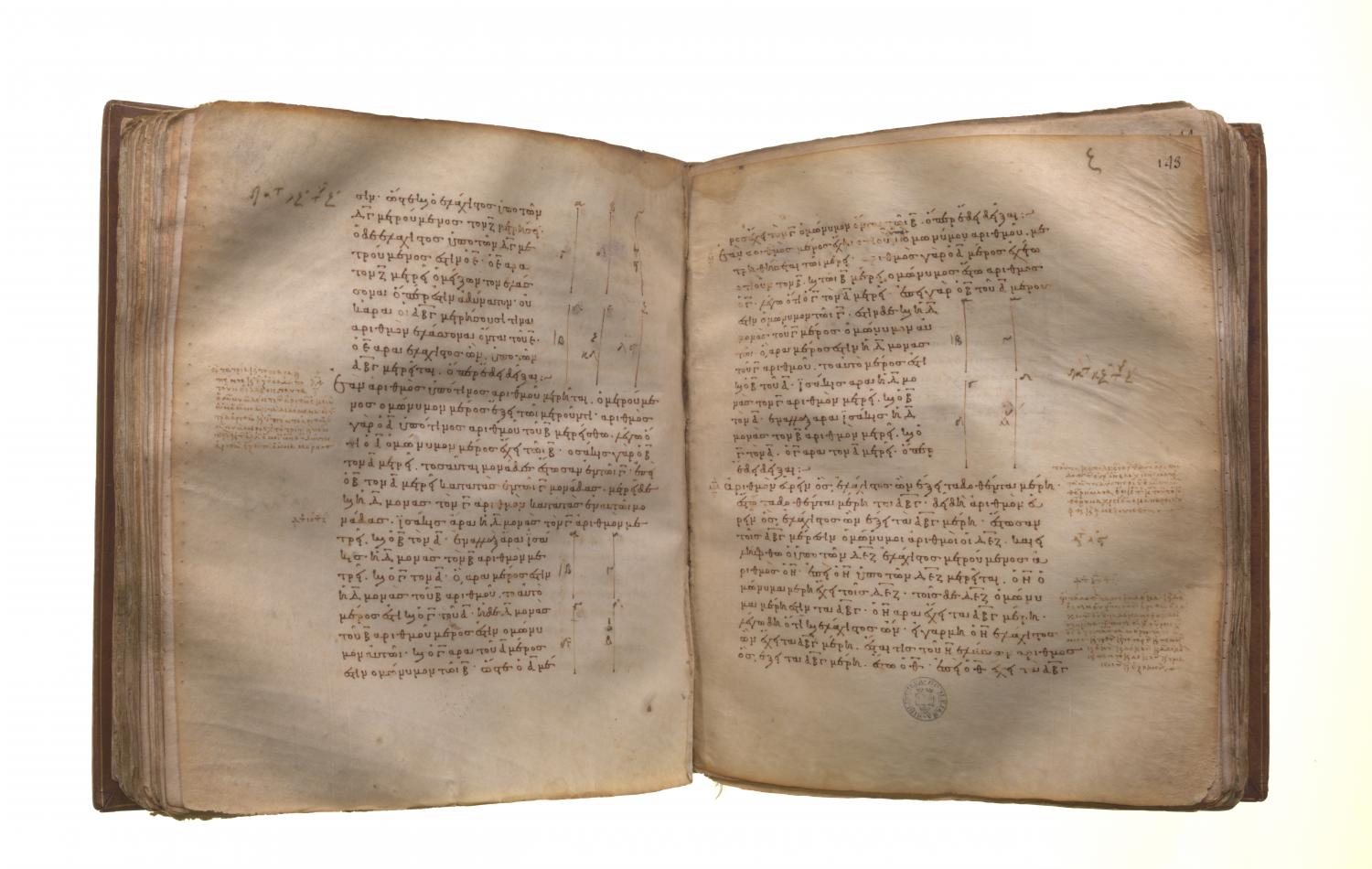Translations
Ἐὰν ἀριθμὸς μέρος ἔχῃ ὁτιοῦν, ὑπὸ ὁμωνύμου ἀριθμοῦ μετρηθήσεται τῷ μέρει. Ἀριθμὸς γὰρ ὁ Α μέρος ἐχέτω ὁτιοῦν τὸν Β, καὶ τῷ Β μέρει ὁμώνυμος ἔστω [ἀριθμὸς] ὁ Γ: λέγω, ὅτι ὁ Γ τὸν Α μετρεῖ. Ἐπεὶ γὰρ ὁ Β τοῦ Α μέρος ἐστὶν ὁμώνυμον τῷ Γ, ἔστι δὲ καὶ ἡ Δ μονὰς τοῦ Γ μέρος ὁμώνυμον αὐτῷ, ὃ ἄρα μέρος ἐστὶν ἡ Δ μονὰς τοῦ Γ ἀριθμοῦ, τὸ αὐτὸ μέρος ἐστὶ καὶ ὁ Β τοῦ Α: ἰσάκις ἄρα ἡ Δ μονὰς τὸν Γ ἀριθμὸν μετρεῖ καὶ ὁ Β τὸν Α. ἐναλλὰξ ἄρα ἰσάκις ἡ Δ μονὰς τὸν Β ἀριθμὸν μετρεῖ καὶ ὁ Γ τὸν Α. ὁ Γ ἄρα τὸν Α μετρεῖ: ὅπερ ἔδει δεῖξαι.
If a number have any part whatever, it will be measured by a number called by the same name as the part. For let the number A have any part whatever, B, and let C be a number called by the same name as the part B; I say that C measures A. For, since B is a part of A called by the same name as C, and the unit D is also a part of C called by the same name as it, therefore, whatever part the unit D is of the number C, the same part is B of A also; therefore the unit D measures the number C the same number of times that B measures A. Therefore, alternately, the unit D measures the number B the same number of times that C measures A. [VII. 15]
